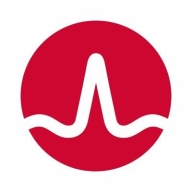


Symantec Storage Protection and Microsoft Defender for Cloud are competing in security management. Microsoft Defender for Cloud is favored due to its comprehensive features, integration capability, and enhanced data security.
Features: Symantec Storage Protection provides robust data backup and recovery options, advanced threat detection, and seamless integration with various storage solutions. Microsoft Defender for Cloud offers cloud-native security, real-time threat protection, and integrated threat intelligence. Microsoft Defender for Cloud tends to provide a more expansive feature set for cloud environments.
Ease of Deployment and Customer Service: Symantec Storage Protection is straightforward to deploy with consistent customer support. Microsoft Defender for Cloud offers streamlined cloud-native deployment, reducing setup complexity. Both offer reliability in service, with Microsoft Defender for Cloud benefiting from easier integration in cloud systems.
Pricing and ROI: Symantec Storage Protection delivers competitive initial setup costs with solid data management features. Microsoft Defender for Cloud presents a higher initial investment offering substantial long-term ROI through advanced capabilities and security enhancements. Symantec is cost-effective, but Microsoft Defender for Cloud is deemed worthwhile for its return on investment.
| Product | Market Share (%) |
|---|---|
| Microsoft Defender for Cloud | 16.6% |
| SentinelOne Singularity Cloud Security | 4.2% |
| Symantec Storage Protection | 0.3% |
| Other | 78.9% |

| Company Size | Count |
|---|---|
| Small Business | 48 |
| Midsize Enterprise | 22 |
| Large Enterprise | 54 |
| Company Size | Count |
|---|---|
| Small Business | 27 |
| Midsize Enterprise | 10 |
| Large Enterprise | 49 |
SentinelOne Singularity Cloud Security offers a streamlined approach to cloud security with intuitive operation and strong integration capabilities for heightened threat detection and remediation efficiency.
Singularity Cloud Security stands out for its real-time detection and response, effectively minimizing detection and remediation timelines. Its automated remediation integrates smoothly with third-party tools enhancing operational efficiency. The comprehensive console ensures visibility and support for forensic investigations. Seamless platform integration and robust support for innovation are notable advantages. Areas for development include improved search functionality, affordability, better firewall capabilities for remote users, stable agents, comprehensive reporting, and efficient third-party integrations. Clarity in the interface, responsive support, and real-time alerting need enhancement, with a call for more automation and customization. Better scalability and cost-effective integration without compromising capabilities are desired.
What are SentinelOne Singularity Cloud Security's standout features?SentinelOne Singularity Cloud Security is deployed in industries needing robust cloud security posture management, endpoint protection, and threat hunting. Utilized frequently across AWS and Azure, it assists in monitoring, threat detection, and maintaining compliance in diverse environments while providing real-time alerts and recommendations for proactive threat management.
Microsoft Defender for Cloud is a comprehensive security solution that provides advanced threat protection for cloud workloads. It offers real-time visibility into the security posture of cloud environments, enabling organizations to quickly identify and respond to potential threats. With its advanced machine learning capabilities, Microsoft Defender for Cloud can detect and block sophisticated attacks, including zero-day exploits and fileless malware.
The solution also provides automated remediation capabilities, allowing security teams to quickly and easily respond to security incidents. With Microsoft Defender for Cloud, organizations can ensure the security and compliance of their cloud workloads, while reducing the burden on their security teams.
Symantec Cloud Workload Protection for Storage helps to protect AWS S3 buckets, enabling secure adoption of containers and serverless technologies such as AWS Lambda. Symantec’s suite of anti-malware technologies, including advanced machine learning and reputation analysis, help to discover and remediate known and unknown threats to keep cloud storage clean. Automatic, scheduled, and on-demand scanning modes enable full-time protection to inspect files as they are uploaded, downloaded, or modified. S3 bucket security posture, alerts, and events are viewed in the single CWP console.
We monitor all Cloud Workload Protection Platforms (CWPP) reviews to prevent fraudulent reviews and keep review quality high. We do not post reviews by company employees or direct competitors. We validate each review for authenticity via cross-reference with LinkedIn, and personal follow-up with the reviewer when necessary.